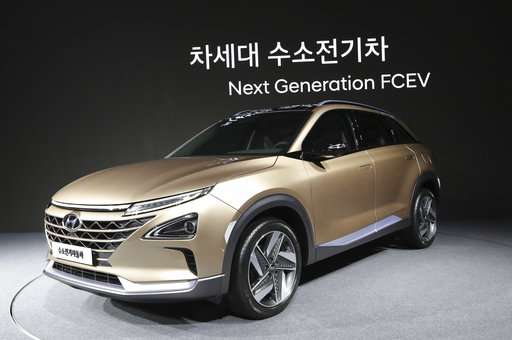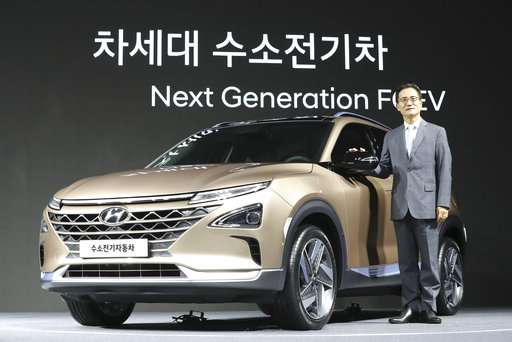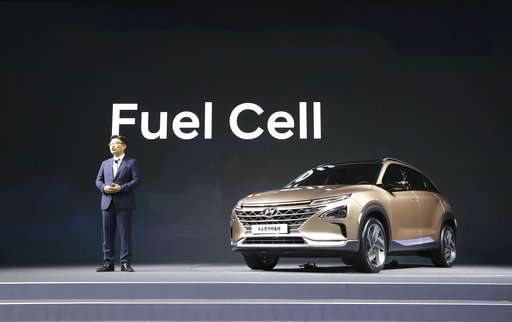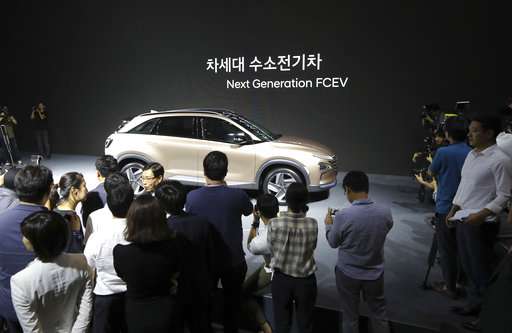Hyundai unveils new fuel cell SUV with longer travel range

Hyundai Motor said Thursday it plans to launch early next year a second-generation hydrogen fuel cell vehicle that will travel more than 580 kilometers (360 miles) between fill-ups under Korean standards.
If delivered as promised, the new fuel cell vehicle will travel 40 percent farther than its first generation fuel cell SUV, the Tucson ix FCEV, launched in 2013. Under European standards, Hyundai said the new vehicle can drive 800 kilometers (498 miles).
Fuel cell cars, emission-free like pure electric cars, can be refueled in two to three minutes unlike electric vehicles that can take several hours to fully recharge. But the dearth of hydrogen fueling stations is an obstacle for mass adoption. Toyota, Honda and General Motors also are investing heavily in fuel cell technology but fuel cell cars are gaining less traction than electric vehicles, which can find charging stations more easily.
South Korea plans to increase the number of hydrogen fueling stations from 16 stations this year to 100 stations by 2020 to sharply raise sales of fuel cell vehicles. The country is aiming to have 10,000 fuel cell vehicles on its roads by 2020 to help alleviate air pollution, its environmental ministry said in March. That would be a jump from just 121 fuel cell cars in 2016.

Hyundai Motor also plans to catch up in the eco-friendly car race with longer driving range electric vehicles.
It plans to launch an electric vehicle with a driving range of 500 kilometers (311 miles) after 2021. Before the summer of next year, it plans to release a small electric sports utility vehicle with a driving range of 390 kilometers per charge. In 2021, its luxury brand Genesis will unveil an electric vehicle model as well.
One reason drivers are reluctant to buy electric vehicles is that they fear not being able to find a charging station in the middle of a trip. Hyundai's first pure electric car IONIQ launched last year had a driving range of 191 kilometers (118 miles) per charge, shorter than the electric vehicles made by Tesla and General Motors.
-

Hyundai Motor Co.'s Director Ryu Chang-sung speaks near Hyundai Motors' new hydrogen fuel cell vehicle during a media preview in Seoul, South Korea, Thursday, Aug. 17, 2017. Hyundai Motor says its new hydrogen fuel cell vehicle will travel more than 580 kilometers (360 miles) between fill-ups. (AP Photo/Lee Jin-man) -

Hyundai Motor Co.'s new hydrogen fuel cell vehicle is surrounded by members of media during a media preview in Seoul, South Korea, Thursday, Aug. 17, 2017. Hyundai Motor says its new hydrogen fuel cell vehicle will travel more than 580 kilometers (360 miles) between fill-ups. (AP Photo/Lee Jin-man)
© 2017 The Associated Press. All rights reserved.



















